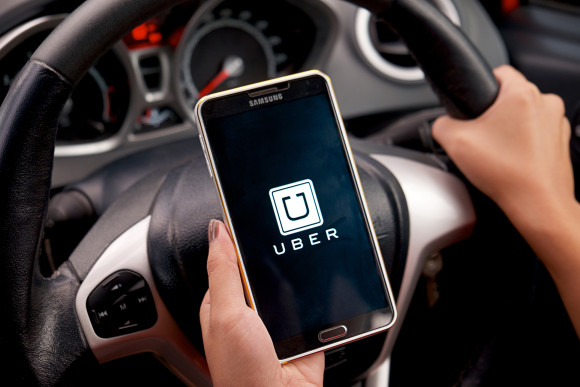The New York Supreme Court, Appellate Division, Third Judicial Department held at the end of December that Uber drivers can be considered employees eligible for benefits such as unemployment insurance.
The finding upheld two previous April 2019 decisions by the Unemployment Insurance Appeal Board stating that Uber qualifies as its drivers’ employer and is liable for unemployment insurance contributions.
Uber Technologies Inc operates a smartphone app that connects customers with available drivers to pick them up and transport them to their destination. Drivers are typically considered independent contractors, and as a result, lack the same protections granted to regular employees under U.S. labor law, such as health and unemployment insurance and workers’ compensation.
In this case, claimant Colin Lowry served as a driver for Uber in its upstate New York market when he applied for unemployment insurance benefits after he stopped participating on the platform.
The New York Department of Labor initially found that Lowry was an employee of Uber, making Uber liable for his unemployment insurance claim. Uber objected to the finding, but following a hearing, an administrative law judge upheld the determinations. The Unemployment Insurance Appeal Board affirmed, and Uber again appealed.
The New York Supreme Court in its December ruling found evidence to support the findings that Uber exercised enough control over its drivers to establish an employment relationship with them. This is because Uber controls drivers’ access to their customers, calculates and collects fares and sets drivers’ rate of compensation.
Although drivers are given freedom to choose the route they take to transport customers, Uber provides a navigation system, tracks the drivers’ location on the app throughout the trip and reserves the right to adjust the fare if the drivers take an inefficient route.
Uber also controls the vehicle used, precludes certain driver behavior and uses its rating system to encourage and promote drivers to conduct themselves in a way that establishes a positive experience for customers.
With this in mind, the New York Supreme Court affirmed the Unemployment Insurance Appeal Board’s findings that Uber has an employment relationship with its drivers, making it liable for unemployment insurance contributions.
In its ruling, the court specified that while Uber also operates a separate New York City market, the December decision is limited to drivers in the upstate New York market where Lowry served as an Uber driver.
Calls for Gig Worker Classification from Coast to Coast
This isn’t the first time a ruling like this has come out of New York.
In March of last year, the New York State Court of Appeals ruled that drivers for the online food delivery service Postmates Inc. are employees who are eligible for state unemployment insurance, Insurance Journal reported.
The decision was born of similar circumstances to Lowry’s case, reaching New York state’s top court as Postmates sought to overturn the state’s Unemployment Insurance Appeal Board’s decision in favor of the driver, Luis Vega, who filed for unemployment benefits after he was terminated in 2015. Postmates initially won on appeal in state court in 2018 but lost in the New York State Court of Appeals.
Calls for app-based ridehailing and delivery service workers to be considered employees eligible for things like unemployment insurance and workers’ compensation aren’t just limited to New York, either.
On the opposite coast, in California, drivers for app-based ride-hailing and delivery services filed a lawsuit just this month to overturn a California ballot initiative that makes them independent contractors instead of employees eligible for benefits and job protections.
The lawsuit filed with the California Supreme Court said Proposition 22 is unconstitutional because it limits the power of the Legislature to grant workers the right to organize and excludes drivers from being eligible for workers’ compensation, the Associated Press reported.
The measure passed in November with 58% support, serving as the most expensive in state history as Uber, Lyft and other services poured $200 million in support of it. Labor unions joined drivers in the lawsuit, spending about $20 million to challenge it, according to the Associated Press.
Was this article valuable?
Here are more articles you may enjoy.



 Pipeline Explodes at Delfin LNG Planned Project in Louisiana
Pipeline Explodes at Delfin LNG Planned Project in Louisiana  Allstate CEO Wilson Takes on Affordability Issue During Earnings Call
Allstate CEO Wilson Takes on Affordability Issue During Earnings Call  Trump’s Repeal of Climate Rule Opens a ‘New Front’ for Litigation
Trump’s Repeal of Climate Rule Opens a ‘New Front’ for Litigation  Insurify Starts App With ChatGPT to Allow Consumers to Shop for Insurance
Insurify Starts App With ChatGPT to Allow Consumers to Shop for Insurance 


